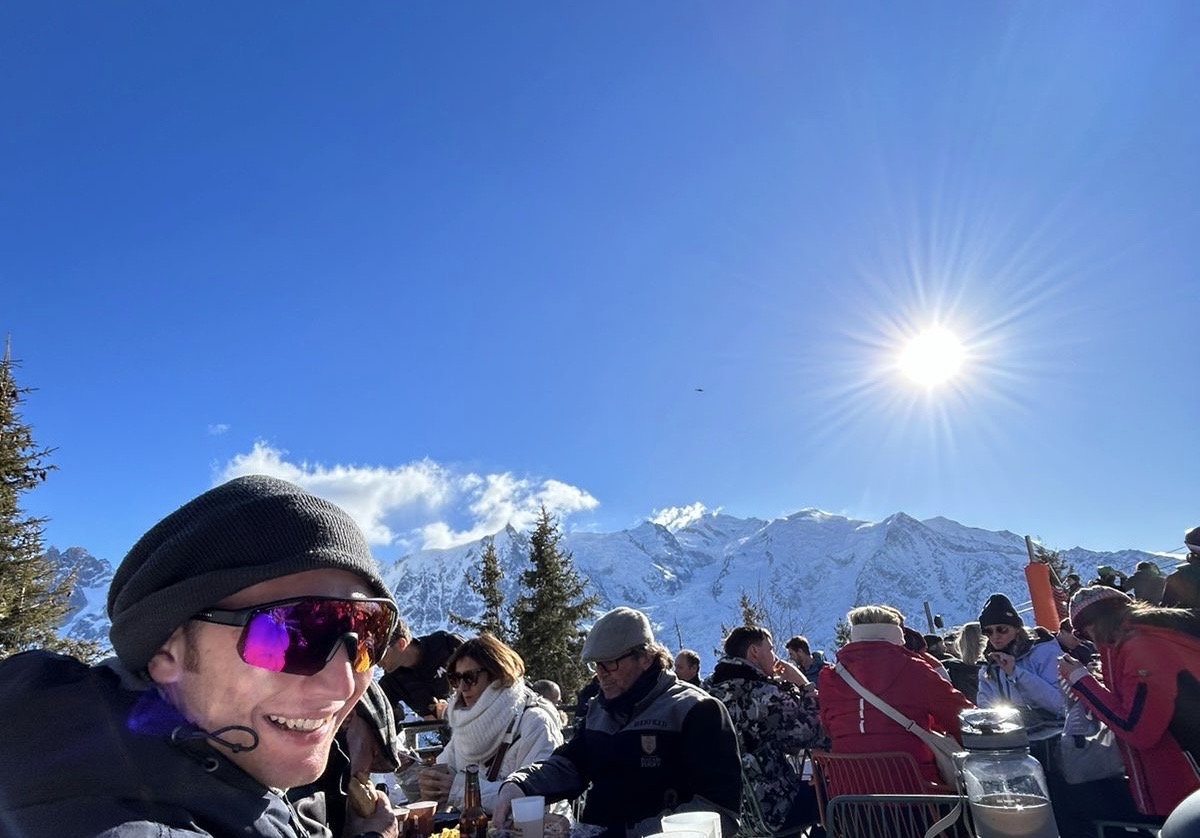Meet Tony, a Mechanical Technician working for the LHCb detector
Meet Tony, a Mechanical Technician working for the LHCb detector
Coming from a mechanical technician apprenticeship, I’ve found myself in a unique role — both a technician and a mechanical designer for the technical coordination team of one of the four main detectors on the LHC, the LHCb.
Tell us a little about yourself and what brought you to CERN.
There are a few things I’ve come to crave in life over the last 24 years, growing up in a small village in the Yorkshire Dales, England: I want to work for something that actually aims to help the universe, not just chase profit. I want to be pushed, to learn something new every day. I want to travel, experience new cultures, and find new communities.
So why not work for one of the world’s largest science facilities, operating at the true cutting edge of technology, with over 100 different nationalities in its workforce, in a city in central Europe? It was a dream before it became my reality.
What do you do at CERN today?
Coming from a mechanical technician apprenticeship, I’ve found myself in a unique role — both a technician and a mechanical designer for the technical coordination team of one of the four main detectors on the LHC, the LHCb.
I’ve been here for 12 months and worked on a variety of tasks alongside one major project. I was the coordinator of a team of seven specialists, using my designs, which I also manufactured, assembled, and installed, to improve part of the detector — specifically our understanding of the magnetic field in the main dipole magnet.
That project has now been completed and has already slightly improved the operation of our detector — which means more science produced this year!
What is working at CERN like for you?
There’s the day-to-day work, which pushes me. It gives me exposure to technologies you won’t see anywhere else, comes with a surprising amount of trust and responsibility, and offers a wide variety of projects and teams.
Then there’s the other side of CERN — just as important — the people! The society, the socials, the constant opportunity to make new friends, great colleagues, and genuine connections. That’s a huge part of what makes working here so special.
I think CERN is a place where you get out what you put in. If you put energy into your experience, the tools and opportunities are all here.
What inspired you to pursue a career in science/engineering?
I initially fell into engineering because I enjoyed working with my hands — starting from nothing and building something real. There’s something satisfying about physically seeing the outcome of your work.
Then I was lucky enough to train in a scientific facility in the UK, which flipped a switch for me and put me on the path toward the big science sector.
- You’re doing things that haven’t been done before — it’s real problem-solving.
- And yes, the corny answer: it makes me feel good that my work contributes to understanding our universe, in the hope that we can preserve it.
My work isn’t aimed at hurting the planet we live on — and that’s what gets me out of bed in the morning.
What skills have you developed since joining CERN?
I’ve learned how to coordinate multidisciplinary teams, how to work in delicate environments, and how to manage myself while juggling multiple projects. My mechanical design and integration skills have also grown massively.
What have been the main hurdles or challenges you encountered along the way?
Honestly? Pretty much all the reasons why CERN is so great.
You arrive wanting to be the best, do everything, and impress everyone — but I learned early on that it’s not feasible. You’re here to make mistakes, find out what you enjoy and what you don’t, and just try your best.
Even the smaller things — like moving to another country and finding a place to live — can be just as exciting as they are frustrating. But once you get over the initial settling in and start finding your place, it was all worth it for me.

Any favourite memories from your time at CERN so far? What’s the most CERN moment you’ve experienced?
I’m working in the LHCb cavern, surrounded by millions of euros’ worth of what are effectively prototype machines, all somehow operating in sync to detect particles.
I’m physically in between them, installing something I designed months earlier, with a team of eight people — each with their own unique and impressive expertise — and it all works. Somehow!
Then, at the end of the day, I go to the R1 restaurant — it’s like a university common room — and meet people working on completely different things, from every corner of the planet.
What advice would you give potential applicants?
Be yourself. Be open. Apply for a role that excites you. Shout about how brilliant you are, but also be honest about what you don’t know. It’s not a secret — nobody here knows everything. We’re all here to learn and contribute our strengths to help make the entire CERN machine work. Every discipline is needed here.